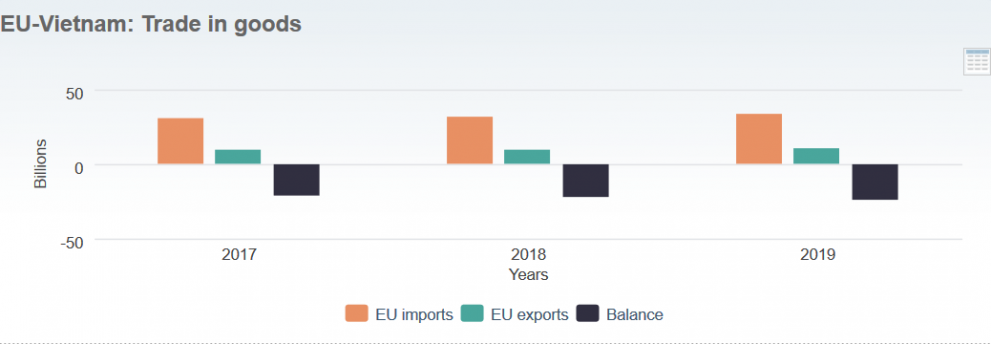Overall relations
Customs relations and cooperation between the EU and Vietnam are part of the EU's overall political and economic relations with that country.
The Cooperation Agreement between the European Community and the Socialist Republic of Vietnam entered into force on 1 June 1996. It contains general provisions on customs matters under paragraph 5 in Article 4 Trade and Commercial cooperation.
More customs related items are included in the Framework Agreement on Comprehensive Partnership and Cooperation between the European Union and its Member States, of the one part, and the Socialist Republic of Viet Nam, of the other part (PCA) that entered into force in 2016.
In Article 16 "Cooperation on Customs Matters and Trade Facilitation" the provisions on customs and administrative cooperation include:
- share experience and best practices in and examine possibilities for simplifying import, export and other customs procedures
- ensure the transparency of customs and trade facilitation regulations;
- develop cooperation on customs matters, and effective mutual administrative assistance mechanisms
- seek convergence of views and joint action in the context of relevant international initiatives including trade facilitation
- increasing the security and safety dimension of international trade;
- ensure a more effective and efficient customs enforcement of intellectual property rights;
- ensure a balanced approach between trade facilitation and the fight against fraud and irregularities
Free Trade Agreement between the European Union and the Socialist Republic of Viet Nam
The Free Trade Agreement (FTA) between the European Union and the Socialist Republic of Viet Nam will enter into force on 1 August 2020.
For Customs, the following Chapters are relevant:
- Chapter 4: Customs Matters and Trade Facilitation
- Protocol 1: Rules of Origin and Origin Procedures
Background Information
The EU exports mainly high tech products to Vietnam and imports electronic products, footwear and textile.

